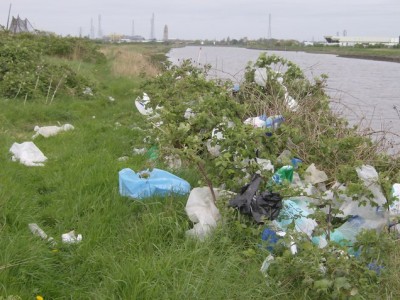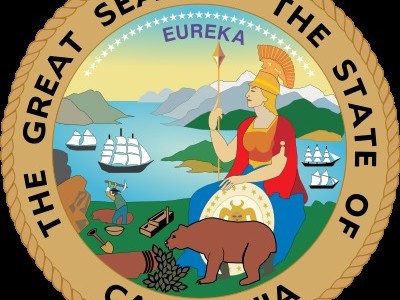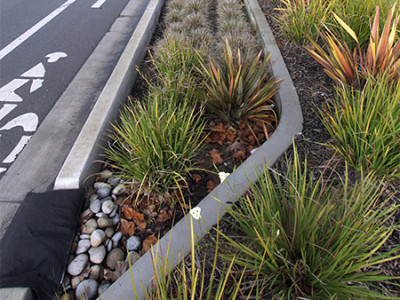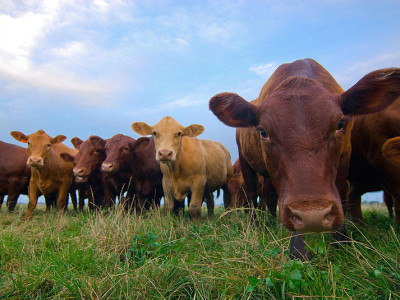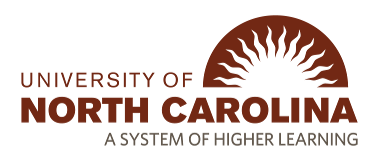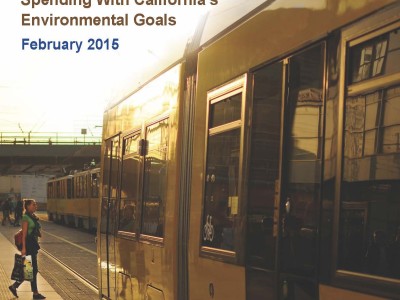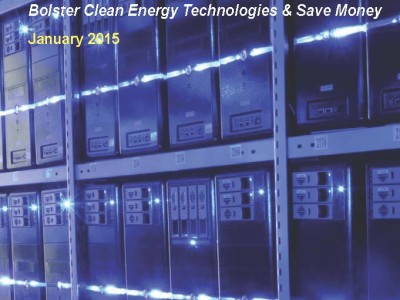Month: February 2015
Referendum Politics: California’s Pioneering Plastic Bag Ban on Hold
Out-of-State Bag Manufacturers Succeed in Qualifying Referendum Measure for 2016 Ballot
California’s recently-legislated ban on disposable plastic bans–the first in the nation–will not take effect on July 1, 2015 as the new law mandates. That’s because industry opponents of the legislation have qualified for the November 2016 election a referendum measure that seeks to repeal the new law. Last fall I wrote on this site about …
Continue reading “Referendum Politics: California’s Pioneering Plastic Bag Ban on Hold”
CONTINUE READINGLet’s Strengthen California’s Climate Goals
Tackling the post-2020 era
A few days ago, I wrote a post taking issue with the idea that AB 32’s emissions limit expires in 2020. Here’s a follow-up. Even with AB 32’s influence beyond 2020, California is right to want to do more. Through the leadership of Senators De Leon, Pavley, and others in the legislature, there’s a package …
Continue reading “Let’s Strengthen California’s Climate Goals”
CONTINUE READINGAccelerating Cost-Effective Green Stormwater Infrastructure: Learning from Local Implementation
A new Berkeley Law report
California decision makers focused on responding to the current drought might question whether stormwater deserves a slice of their attention right now. Although it might be tempting to relegate stormwater planning, management decisions, and infrastructure improvements to a back burner until drought concerns cool off, doing so would be counterproductive. Below, I explain why stormwater management is relevant …
CONTINUE READINGPrioritizing Livestock Emissions
How do you solve a problem like manure?
Under AB 32, California’s climate change law, “greenhouse gas” is defined to include carbon dioxide, methane, nitrous oxide, and some fluorinated gases. But the bulk of the state’s efforts to date have focused primarily on the first. CO2 is undeniably the primary offender: It accounts for about three quarters of annual global emissions, and is …
Continue reading “Prioritizing Livestock Emissions”
CONTINUE READINGThe Climate-Nutrition Nexus
The advisory panel on nutrition ruffled some congressional feathers by taking environmental impacts into account. The panel’s report concludes that “a dietary pattern that is higher in plant-based foods, such as vegetables, fruits, whole grains, legumes, nuts, and seeds, and lower in animal-based foods is more health promoting and is associated with lesser environmental impact than is …
Continue reading “The Climate-Nutrition Nexus”
CONTINUE READING‘The Centers Cannot Hold’ . . . At Least, Not in North Carolina
Attack on academic freedom? Or misunderstood management effort?
Both the NY Times and the Washington Post have reported on a recommendation that the North Carolina Board of Governors close several university centers. [Update: the recommendations were adopted by the Board a week later.] There are strong allegations that this is part of a conservative attack on the university system. There are certainly grounds to suspect …
Continue reading “‘The Centers Cannot Hold’ . . . At Least, Not in North Carolina”
CONTINUE READINGAB 32 and post-2020 climate goals
What does California’s Global Warming Solutions Act say about emissions after 2020?
I have heard some references, recently, to AB 32 “expiring” in 2020. It’s easy to understand where this idea comes from: California’s premiere climate change law was passed in 2006 and sets a goal for the state to return to 1990 levels of greenhouse gas emissions by a deadline of 2020. Moreover, one of the …
Continue reading “AB 32 and post-2020 climate goals”
CONTINUE READINGImproving Transportation Spending In California
Joint UCLA / UC Berkeley Law Report Released Today
California spends approximately $28 billion on transportation infrastructure each year. But are we spending that money as cost-effectively as possible? And given the major impact that transportation investments have on our land use patterns and the amount of driving we need to do, are we spending this money in ways that align with California’s environmental …
Continue reading “Improving Transportation Spending In California”
CONTINUE READINGClean Energy Data Legislative Briefing In Sacramento
Lunch event will be held on Tuesday, February 24th
UC Berkeley and UCLA Schools of Law will be hosting a free legislative lunch briefing next Tuesday on expanding access in California to clean energy data, the subject of the Knowledge is Power report that the law schools released last month. The energy data could include improved customer access to long-term usage patterns, utility statistics …
Continue reading “Clean Energy Data Legislative Briefing In Sacramento”
CONTINUE READINGProperty, Fairness and the Public Interest (Another Glimpse of the Cathedral)
Why do we recognize some things as “property” and what does it mean to do so? A hugely influential law review article, published over forty years ago, made a valiant attempt to clarify the nature of property law. Looking back on the article and at developments since then, however, only makes it clearer that “property …
Continue reading “Property, Fairness and the Public Interest (Another Glimpse of the Cathedral)”
CONTINUE READING




